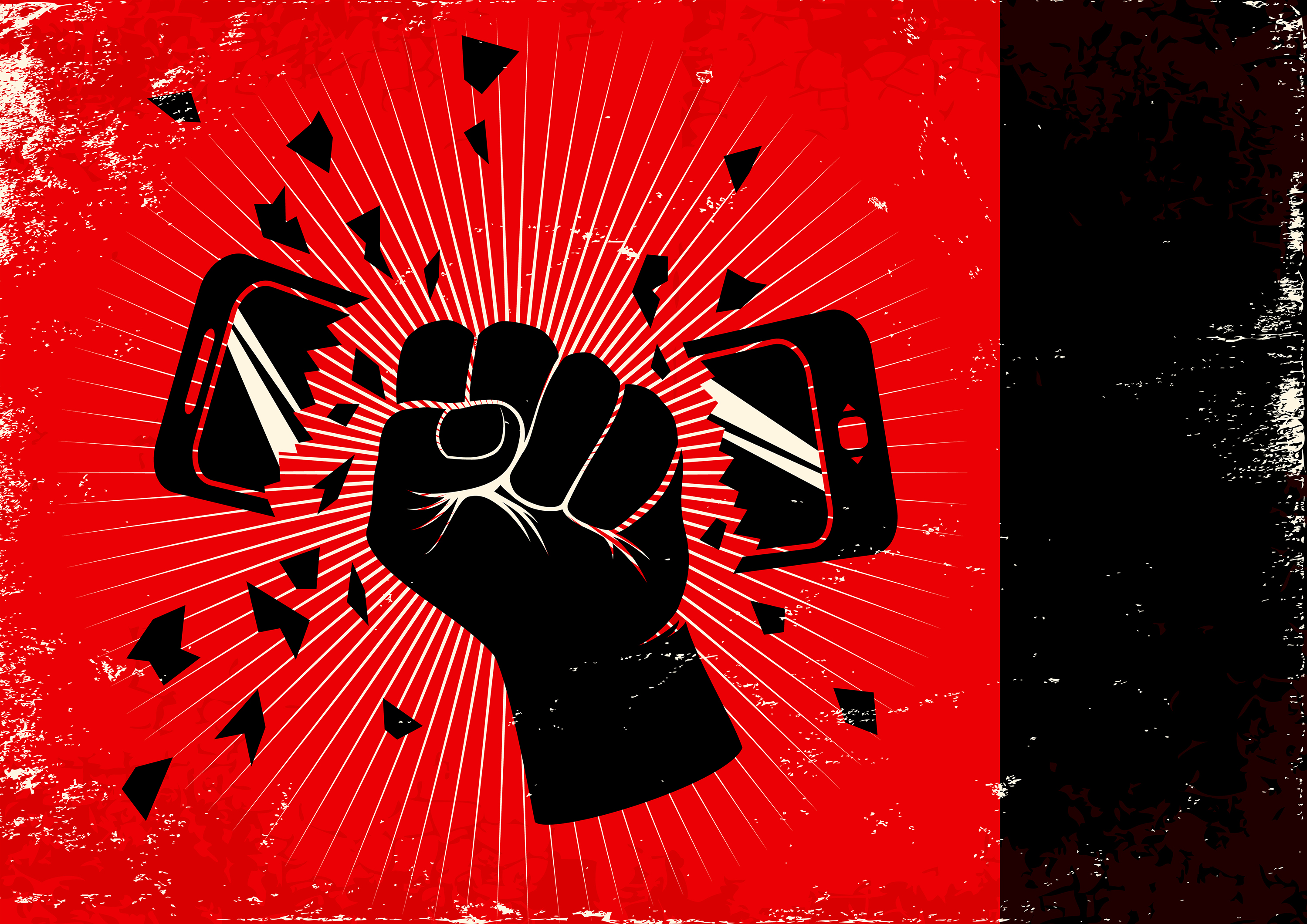Your smartphone is really stupid
A truly smart smartphone would administer a quick blood alcohol check before giving me the contact information for an ex-girlfriend


A free daily email with the biggest news stories of the day – and the best features from TheWeek.com
You are now subscribed
Your newsletter sign-up was successful
"Smart" is the new black.
More than 50 percent of Americans are tethered to smartphones, a trend phrased in terms of "penetration" because it's so inevitable. We have smart TVs, smart cars, smart barbecue grills. Smart watches are waiting on deck, taking mighty swings. Last month's Consumer Electronics Show in Las Vegas featured smart teakettles, smart toothbrushes, and smart flowerpots. Somewhere, VCs are signing checks to fund the development of smart cupcakes and smart toilet paper.
These digital darlings are impressive, no question. But are they actually smart — like, you know, people smart? Absolutely not.
The Week
Escape your echo chamber. Get the facts behind the news, plus analysis from multiple perspectives.

Sign up for The Week's Free Newsletters
From our morning news briefing to a weekly Good News Newsletter, get the best of The Week delivered directly to your inbox.
From our morning news briefing to a weekly Good News Newsletter, get the best of The Week delivered directly to your inbox.
Our supposedly smart gadgets are wirelessly connected and digitally configurable. But that doesn't equal intelligence — not even close. Your smart blender is programmed by a smart human: you. That smart gadget is smart like an adorable puppy who rolls over onto his back when he's told, because a biscuit appeared the last time he did it. ("Oh — look how smart he is!")
Artificial intelligence turned out to be a lot harder than we thought. Our lazy scientists were supposed to deliver it decades ago, along with jet-packs and flying cars and hoverboards. Maybe we can be forgiven for trying to pretend we're there now.
I want my Internet of Things to be as smart as my best employee, not my worst one. Calling everything connected to wifi "smart" smacks of settling for a diminished future. Are we really satisfied with a grill that's wirelessly connected to a database of cooking times? Don't we want true artificial intelligence in our Internet of Things?
Let me offer a peek at what a truly smart TV would do. It would never let you watch Die Hard With A Vengeance, for the seventh time, at three in the morning. It would know you, intimately, and act according to your best interests. It would always find the very best thing for you to watch right now, based on everything it knows about you: your current mood, the books you buy, your dating status. A truly smart TV would be your right-hand man; it would exist solely to further your dreams. If it sensed you not clicking away from Dance Moms, for example, it would quickly and professionally alert emergency medical services.
A free daily email with the biggest news stories of the day – and the best features from TheWeek.com
I want a smart car smart enough to find its own diners and parking garages, to pull into a gas station when it's hungry, to change the radio station every time a commercial comes on — especially that thrice-damned 1-877-Kars-4-Kids ad. I want a smartphone smart enough to administer a quick blood alcohol check before giving me the contact information for an ex-girlfriend or boss.
Clearly we're going to ignore every warning from science fiction and chase this artificial intelligence thing all the way to its bleak conclusion, and that's fine. I, for one, welcome our new Roomba overlords. I'll happily give up every shred of privacy to my wireless universe of intercommunicating things, if in return they know what I know, think like I think, and do what I would do.
Until then, let's not let marketing's sizzle get out ahead of development's steak. Let's put a moratorium on the word "smart" until our devices wise up.
Keith Blanchard is CEO of Teamstream Productions, a next-gen content production house dedicated to assembling the exact team you need to conquer any publishing objectives. In previous media lives he was chief creative officer of Story Worldwide, ran digital for Rolling Stone, launched websites for Us Weekly and Cosmopolitan, and was editor-in-chief of Maxim magazine. Generally speaking, though, he would rather be fishing.
-
 What are the best investments for beginners?
What are the best investments for beginners?The Explainer Stocks and ETFs and bonds, oh my
-
 What to know before filing your own taxes for the first time
What to know before filing your own taxes for the first timethe explainer Tackle this financial milestone with confidence
-
 The biggest box office flops of the 21st century
The biggest box office flops of the 21st centuryin depth Unnecessary remakes and turgid, expensive CGI-fests highlight this list of these most notorious box-office losers
